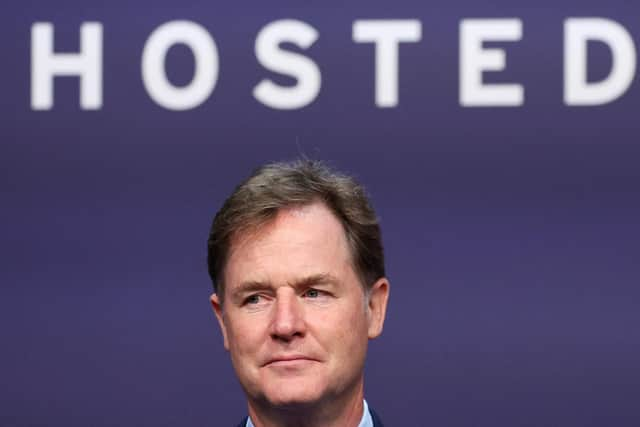The absence of referendum for East Yorkshire devolution is telling - David Behrens
It would be a gambit straight out of Donald Trump’s playbook; a proposition so preposterous that no-one could possibly take it seriously. Yet it’s more or less what they’re doing in a quiet corner of Yorkshire right now. And the most worrying part is that they have a point.
The detail was buried within Jeremy Hunt’s budget statement on Wednesday. You might have missed it amid the excitement of 2p off national insurance, but Hull and the East Riding will soon have a mayor with decision-making powers devolved from Westminster. It’s the same system that is proving effective in the more populous parts of the North so it’s not before time.
Advertisement
Hide AdAdvertisement
Hide AdBut while the mayor will eventually have to be elected, the constitutional change necessary to shift the balance of power away from local councillors will not be put to a vote. To do so would risk a repeat of what happened with Brexit, the East Riding’s soon-to-be emasculated councillors were told last week.


The Conservative and Lib Dem groups, which between them account for three-quarters of City Hall, both agreed that while residents could be “consulted” about the new arrangements a referendum would risk a return to the “bogus patriotism” of 2016. Those were the words of Jeremy Wilcock, one of the Lib Dem contingent.
I agree. But all the same, it’s a dangerous precedent. If we can’t have a referendum on one issue, what else can’t we be trusted to vote on? And if misinformation is being spread online shouldn’t we be trying to control it rather than surrendering to it?
Besides, misinformation – lies by any other name – begins with politicians, not voters. The internet is merely the machine that fans the seeds of mistruth they have sown. In the East Riding at least, no-one seems to disagree with that.
Advertisement
Hide AdAdvertisement
Hide AdIn fact if it’s dissent you want, you have to look to Mr Wilcock’s former leader, the ex-Yorkshire MP Nick Clegg, who now earns his living across the Atlantic by stoking the engine room of inaccuracy. Clegg is the highly-paid spin doctor to Mark Zuckerberg of Facebook, most powerful and least transparent of all the platforms that profit from the viral spread of falsehoods.
The Americans have a word for what Clegg does and the word is shilling – the art of praising something or someone for personal profit. To that end, he was a lone voice at Rishi Sunak’s ill-conceived summit on artificial intelligence earlier this month, where he insisted the dangers were overstated and that the whole thing was really nothing more than the fuss over video games in the 1980s.
But almost as soon as the words had left Clegg’s mouth, Zuckerberg was being accused at a US Senate hearing of failing to heed warnings about the safety of his software.
Facebook, let me remind you, was created originally as a tool for male students to spy on their female co-eds. It was born bad. That’s an inconvenient truth Clegg chooses to ignore. But it’s a mark of how much more poisonous the platform has become that it’s now impossible to hold a simple public poll in his own former backyard.
Advertisement
Hide AdAdvertisement
Hide AdThat’s a shame because I’d have voted in favour of devolution for the East Riding, if only because elected mayors have more clout than clusters of councillors and – for the moment – the ear of ministers. And because decisions are more likely to be made quickly if they are taken by a single person, not 50 people.
You can see why by studying more of the small print in the budget. This concerned the signing-off of £169m for regeneration projects across Yorkshire without the need for another of those Hunger Games-style bidding processes by local authorities. Instead, officials in Whitehall’s levelling-up department picked the winners from those that lost out in the previous two lotteries.
They didn’t appear to have told anyone in advance that they were doing this, though – so whether projects drawn up two years ago are still viable is unknown. A few clerks in Whitehall could have picked up the phone to check but they wouldn’t have got a straight answer because someone would have had to ask someone else and then they’d need a committee meeting. So set against that, the idea of putting power in the hands of a single individual seems like progress.
But on the national stage the issues are less straightforward. The misinformation machine will distort them like laughing grotesques in a hideous hall of mirrors and he who lies loudest will laugh longest.
Donald Trump would love that.